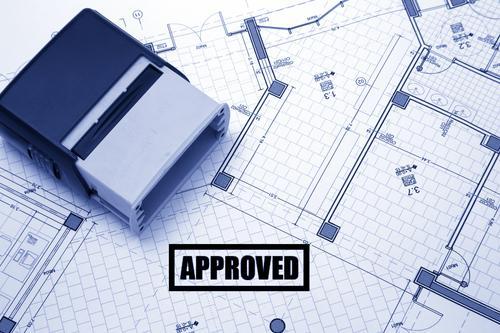With inflation soaring to levels not seen for decades the cost-of-living crisis is affecting nearly all aspects of life in the UK. That means that house extension costs are going up rapidly, so if you’re looking to keep the financial impact of your next big build to a minimum, there are a few important steps to consider.
Research for and plan your home extension project
Make sure you take the time to fully research and plan every aspect of your home extension project, from the specs, to the builder and budget. We've produced advice and support to help you do this, so check out:
- Our Ultimate Guide to Home Extensions
- Building Regulations: What you need to know
- 6 home extension ideas you won't want to overlook
- 6 common mistakes to avoid when planning an extension
- Extension tips
- How to choose a builder
Source multiple quotes for your extension

We’d always recommend you source at least three detailed, itemised quotes for the work you have in mind. These are much more in-depth than simple estimates. As detailed quotes take time to produce, some builders may also charge a small fee for producing them, which is usually deducted from the bill if you appoint them. Charging for quotes can also help to weed out time-wasters.
This might initially seem like an unnecessary initial outlay, but it’s worth investing a little now to get an accurate picture of extension costs and avoid nasty shocks later. Remember – the cheapest options may not be the best option; your extension costs could inflate considerably if you have to pay to have substandard work redone at a later date.
Be honest about your home extension budget
When speaking to builders it's also important to be open and upfront about your budget. It may be tempting to keep your cards close to your chest, but honesty is the best policy when it comes to forming a trusting working relationship and a willingness to compromise when unforeseen challenges arise.
Get detailed plans drawn for your project

Once you’ve found the right builder, be sure to provide them with detailed plans for your project.
If your builder doesn't offer a full design and build service, you can approach architects to help produce these. The Royal Institute of British Architects (RIBA) offer a free service to help you find one in your area. Architects are usually familiar with the specs and details required for an effective building plan and represent the best option for bringing your extension vision to life.
If your extension budget won't stretch to cover the additional cost of an architect, a draughtsperson could be your next best bet. These are professionals who specialise in producing technical drawings to serve as the basis for mechanical, construction or engineering projects. Whilst they may not possess the background knowledge you might expect from an architect, they typically used computer aided design (CAD) to produce detailed plans that your builder can work from.
You may find suitable professionals in your area by searching online, asking for recommendations from friends, or your builder may know trusted individuals they have worked with before. Remember though that a draughtsperson will still need to be given all the details about your home extension plan, right down to where the staircase, walls and windows will go.
The more detail you can provide in your plans, the more accurately your builder can determine your probable extension costs. What’s more, a detailed plan shows your builder you are serious about the project and are keen to crack on.
Sign a contract with your builder detailing all planned extension costs

All FMB builders can offer you a contract covering all aspects of your extension project, at no extra cost. We’d always recommend you and your builder take the time to detail all the agreed services and associated costs involved in your home extension project and sign a contract documenting them in full.
Whilst most contracts will include some degree of flexibility to accommodate volatile materials prices, signing one can help you and your builder stay within budget and on-time with regards to completion and payment.
Having a contract in place also means all parties are aware of the responsibilities / obligations and works to minimise disputes.
Consider getting planning permission for your house extension

Rather than rushing ahead and trying to get everything done under permitted development rules, it may be wise to apply for planning permission. Once approved, permission lasts for three years which could give you time and scope to include everything you really want in your home extension.
Going through the planning application process could mean you get that extra metre or two of space, which in turn allows room for a boot room or means your extended dining room has enough space for your extended family. When it comes to improving your home, it really pays to think about how to get the most out of the process.
Planning permission is in any case often required for home extensions or alterations, so before works begin you should ascertain whether you need it. Information on how to do this can be found in our Ultimate Guide to Planning Permission.
Consider using alternative materials and fittings in your home extension

It’s no secret that some materials and fittings are incredibly hard to get hold of at the moment - we provide regular updates on the latest product availability statements from the Construction Leadership Council to help keep you informed.
If you notice that there are products you planned to use that are in short supply, it’s worth discussing alternatives with your builder. Sometimes materials very similar in style and / or texture to those ones originally planned can be obtained significantly more quickly, or at a lower cost. Where possible, it may be worth trying to source alternative materials or fixtures made in the UK, to cut down on lead times and import costs and keep your home extension project on-track.
Keep a larger contingency fund for unforeseen extension costs
Given the current economic climate, taking on more debt to pay for your home extension project is not the best option for most homeowners. In light of this, it may be wise to consider scaling back some aspects of your project to allow you to keep a larger contingency fund.
Waiting for a year or so for conditions to stabilise could also mean you are in a better position to save. Thereafter, you can begin the build at a time when the cost of living has become more manageable and the need for a sizeable contingency fund reduced.

Can’t wait to start your home extension project?
If you’re fully planned, prepped and ready to start your home extension project, use our free Find a Builder service to find fully vetted and independently inspected builders near you today.

